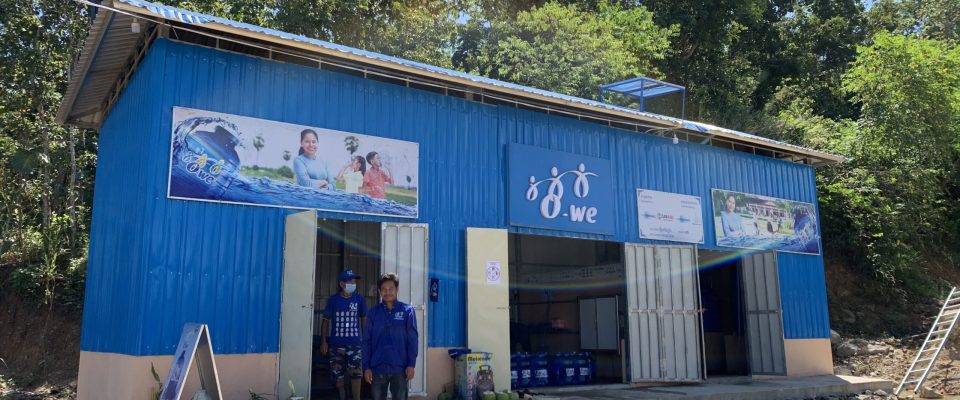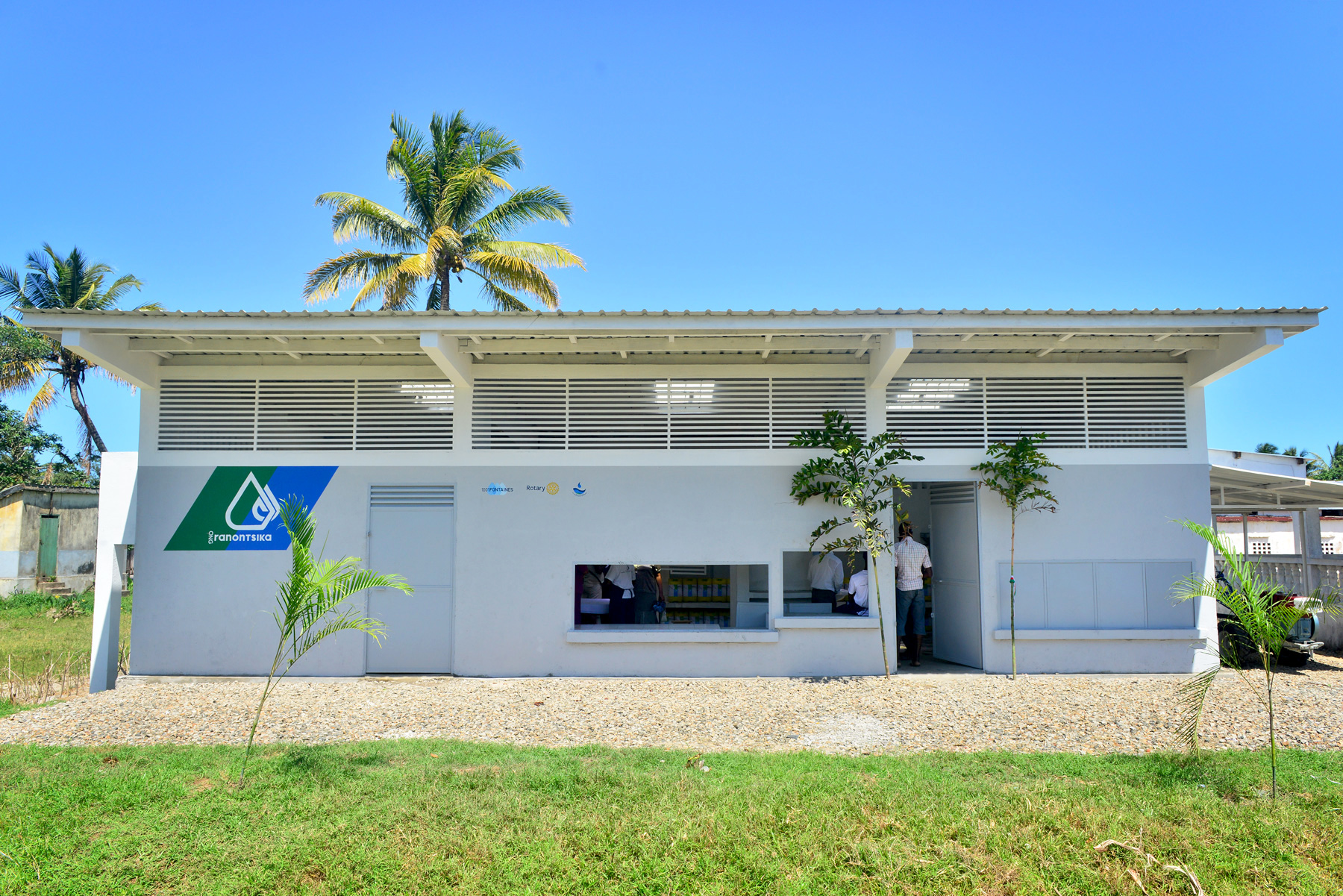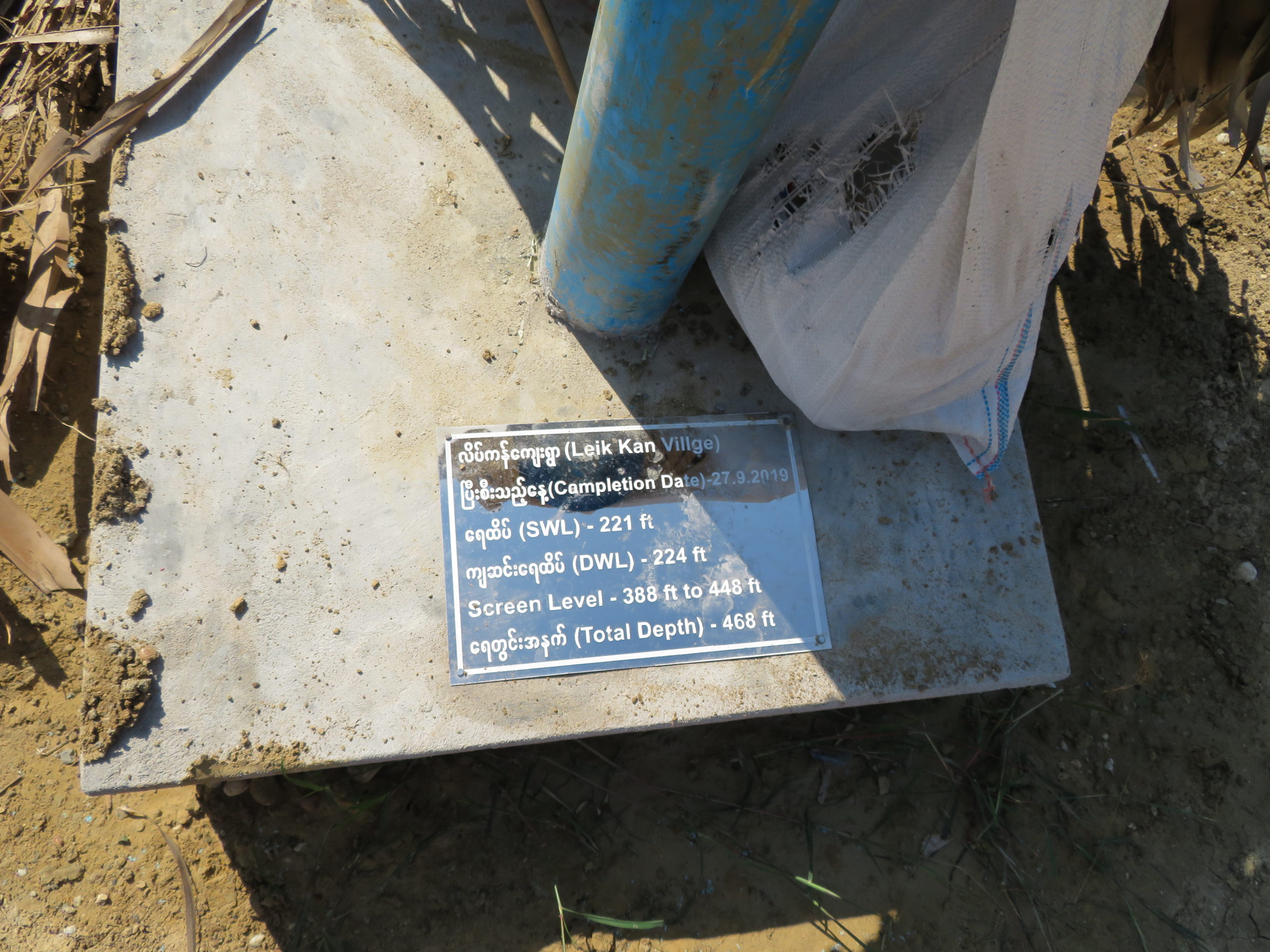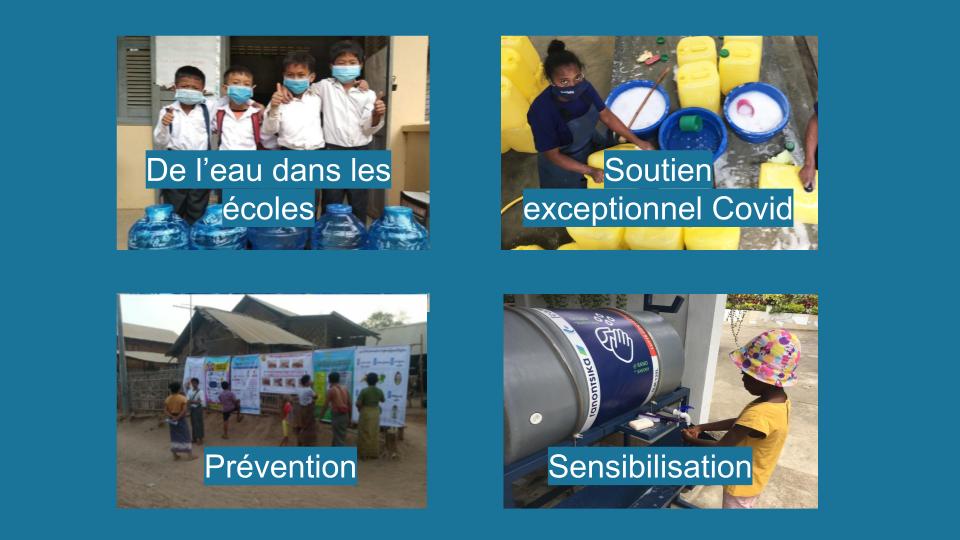Changes in climate patterns, including more frequent and severe droughts, floods and storms, are already impacting water availability and quality. Maintaining supply to the currently served populations, while trying to reach the 2.2 billion people who still lack access to safely managed drinking water is likely to become an even greater challenge in the coming years.
In this context, small-scale decentralized solutions, such as water kiosks, have demonstrated their capacity to complement traditional piped systems, especially in remote areas. Adapted to local contexts and requiring relatively small capital investments, they are recognized for their inherent resilience, thanks to significant flexibility to react to unplanned events.

The uncertainty created by climate change has led 1001fontaines to develop a more extensive adaptation plan. The plan consists of the three main actions described below.
Responses to local weather related problems
We have been operating in Cambodia since 2005 and have recently observed an increasing number of climate irregularities. From a clear seasonal pattern based on a six-month dry season and a six-month rainy season, the country has moved to experiencing large variations in the past years: almost no dry season but rain and low temperatures throughout the whole year of 2018, followed by record droughts and floods in 2019 and 2020.
These abnormal weather patterns have required 1001fontaines and the local entrepreneurs to adapt and find alternative solutions, such as renting boats to ensure home delivery of safe drinking water during floods. We have also developed a drought mitigation plan, defining the procedures to support a kiosk whose raw water source has dried up. That plan details a portfolio of solutions that can be adopted based on each local situation: connection to another local water source; provision of 20L containers by a nearby water kiosk; supply of raw water through water trucks.
Thanks to these fallback solutions, 89% of the water kiosks affected by drought in 2020 continued to operate normally.
However, hostile climate events are likely to increase and threaten the continuity of some operations. The mitigation plan creates extra costs that challenge our model and call for complementary adaptation measures.

Long-term adaptation to ensure resilience
1001fontaines has analyzed the climate-related risks at country level and has already started designing adequate infrastructures. In Madagascar, the 8th country in the world most affected by climate change, water kiosks are built to resist storms and cyclones. In Cambodia, water kiosks are raised above ground level to limit flooding risks within the building. And in Myanmar, we dug deep tube wells (300+ feet) to guarantee year-long availability of raw water for the kiosks.
In the future, 1001fontaines anticipates the needs to select back-up raw water sources for the sites most at risk and to analyze emerging treatment solutions that could provide improvements in terms of water resource management, quality insurance and energy consumption.

Call for partnerships to work collectively on adaptation strategies
The resilience of water services for vulnerable populations is key for future development and achievement of the SDG targets. As stated by the United Nations Environment Programme (UNEP), “earth’s environmental emergencies and human well-being need to be addressed together to achieve sustainability”.
The steps taken by 1001fontaines have not been without challenges. They imply increased budgets and new technical expertise to be acquired. We are convinced that there is a large scope for knowledge sharing and operational collaboration, which would result in enhancing the impact of field actions, sharing of resources and limiting the overall costs linked to adaptation to climate change.
Improvement of water governance, to avoid conflicts emerging from scarcity or decreasing quality, will also become a central topic in the coming years. Engagement today in developing adequate resource management at the local level and legal frameworks at the national level will facilitate the necessary collective effort to sustain and expand safely managed water services.

With its central role in so many dimensions of development, water is both part of the answer and a key risk.
When it comes to climate change, we all are in the same boat: let us join forces to find practical, impactful solutions that will ensure resilient water services.
- For more information on Safe Water Enterprises’ climate resilience, read the Dalberg’s study
- To know more about the UNEP scientific blueprint for tackling climate, nature and pollution emergencies read the “Making Peace with Nature” report

